Many people with blonde hair see their hair turn brown as they get older, but why does it happen? It can be due to genetic or age and other controllable elements (buildup of products or environmental factors).
You can prevent the change or revert discolored blonde hair to its original color. This article explores the causes, prevention, and solutions of blonde hair turning brown.
Why Does Blonde Hair Turn Brown?
Here are the top reasons for blonde hair turning brown.
Pigment Activation
Melanin properties can activate or deactivate as hormones change through different life stages. Changes are more common during puberty and during or after pregnancy.
Also, blonde hair has very little eumelanin. But as you age, eumelanin production speeds up and darkens your blonde hair.
Environmental Factors
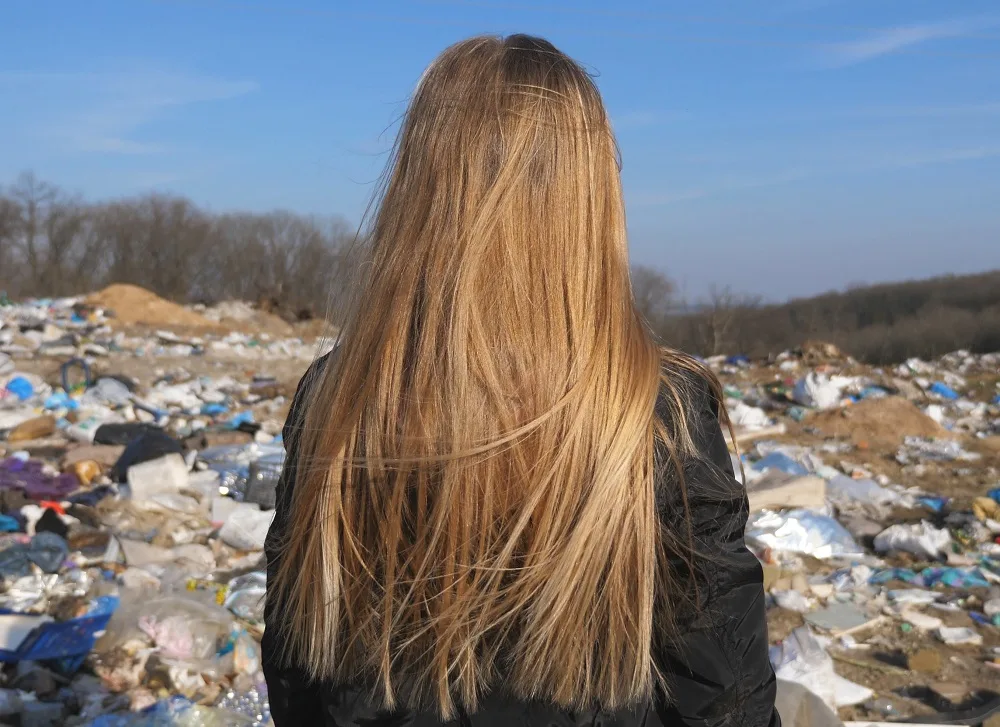
Exposure to air pollution and humidity increases melanin production, which makes your hair darken. Overexposure to UV rays damages the protective cuticle and predisposes your hair to discoloration. The UV rays also increase melanin production, which further darkens your hair.
Frequent Use of Hard Water
Hard water has a high quantity of minerals, which fill your shaft and causes blonde hair to darken. Even if your water isn’t hard, minerals from old lead or copper pipes can infiltrate your water.
The minerals in hard water cause blonde hair to become dry and brittle, resulting in a dull appearance.
Build Up
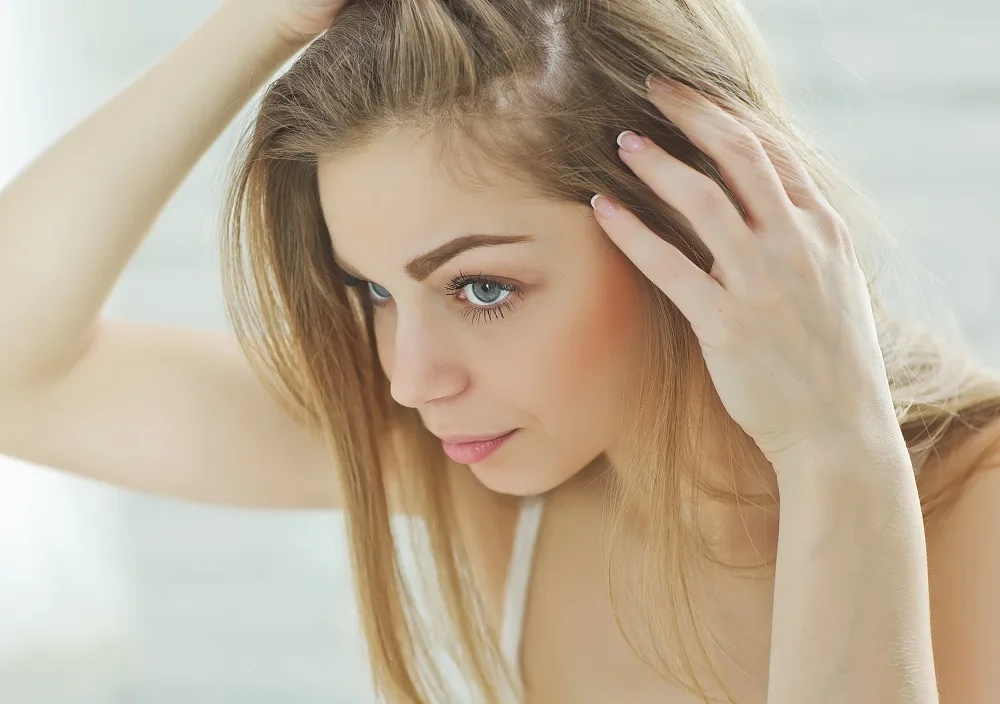
Products like mousse, hair spray, and gel deposit gunk that weigh down your hair. Rust build-up can also turn your hair color, especially if you use well water. Blonde hair absorbs the product build-up easily.
The build-up stops pigment molecules from getting attached to your hair. As a result, your hair becomes dull on top.
Too Much Heat
Excessive heat from styling tools leads to dryness, breakage, and split ends. The damaged structure makes your hair more prone to discoloration from the elements. Also, when you rinse your hair with hot water, the cuticles open up and fade more.
Excessive Use of Purple Shampoo
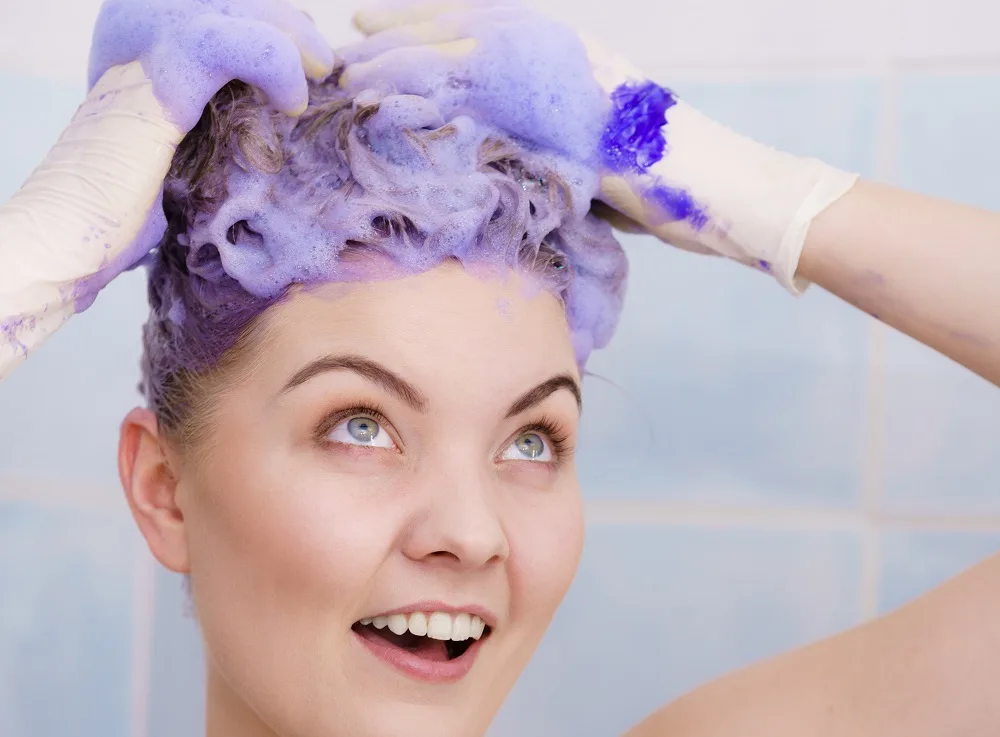
Purple shampoo counteracts the yellow undertones to enhance cool-toned hair color. Nonetheless, too much use of purple shampoo causes your hair to absorb the purple pigment into the cuticle. As a result, your blonde hair becomes darker.
What To Do To Prevent Blonde Hair From Turning Brown?
Blonde hair turning brown due to hormones isn’t something you can prevent. However, for other external factors, use the preventive measures below to maintain your blonde hair.
Avoid Hard Water
Add a water filter to the house if your area has hard water. That way, you keep off the minerals that dye your blonde hair. If a whole house water system is too expensive, invest in a showerhead filter.
Protect From Chlorine
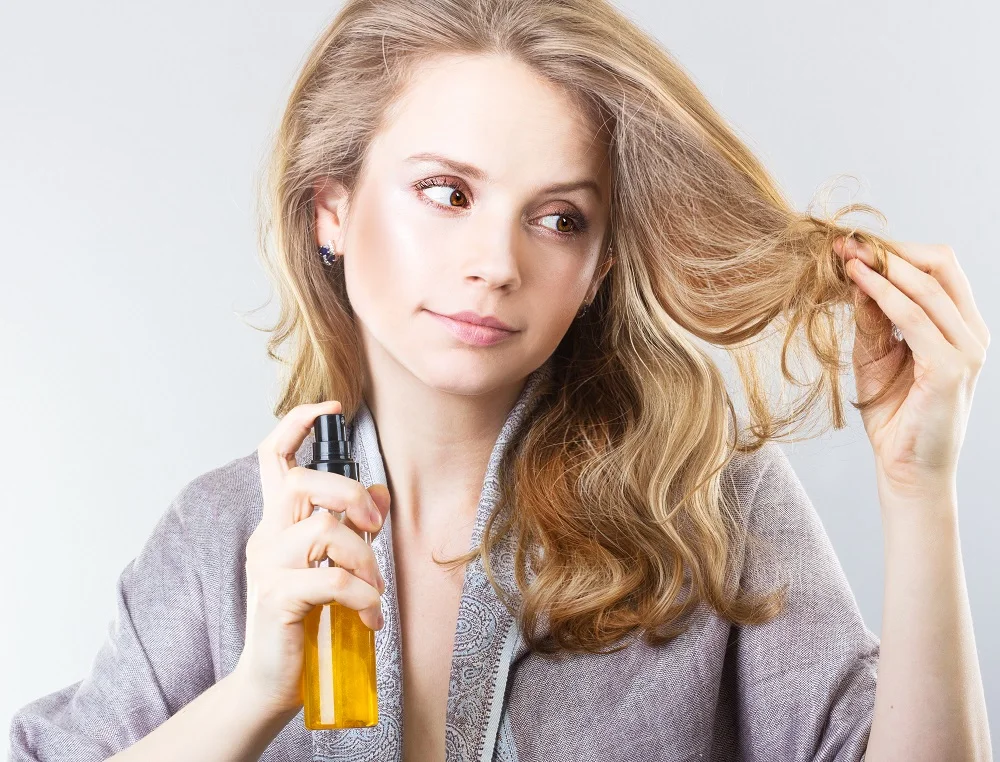
Wear a swim cap before you get into the pool to protect your hair strands against contact with chlorinated water.
Alternatively, spray your hair with tap or filtered water before entering the pool. The unchlorinated water ensures your hair doesn’t soak up much chlorine from the pool water.
Avoid Hair Build-Up
Use vinegar, clarifying, or chelating shampoo to strip the build-up from each hair strand. Clarifying shampoo removes product build-up, while vinegar and chelating shampoo remove metals from your hair.
Chelating shampoos also remove deposits that fade color to prolong the life of your hair color.
Cut on the Heat
Use quality heat protectants on your hair before you use heat tools. Then, set the devices to low or medium heat levels to prevent hair damage.
If you must wash your hair with hot water, use cold water rinse to close the cuticle cells. That way, you give your hair a glossier look and prevent dullness.
Treat With Leave In Conditioner
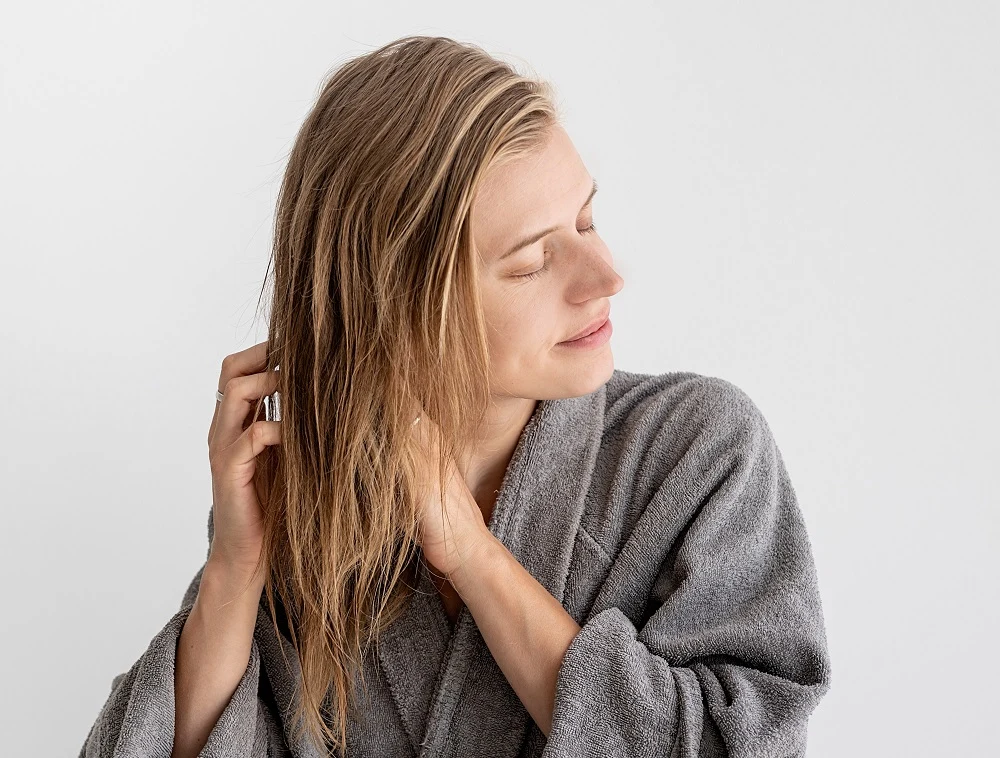
A leave-in conditioner forms a protective barrier around your hair shaft. The layer protects your hair from environmental pollutants that could cause this color change.
For example, collagen-infused leave-in conditioners protect your hair from damage by heat tools.
Keep Off Harsh Chemical Treatments
Blonde hair turning brown can result from the frequent use of harsh chemicals. So, use sulfate-free shampoos that reduce brassiness. Also, opt for natural products that are gentle on your hair and scalp.
How to Fix Blonde Hair That Turned Brown
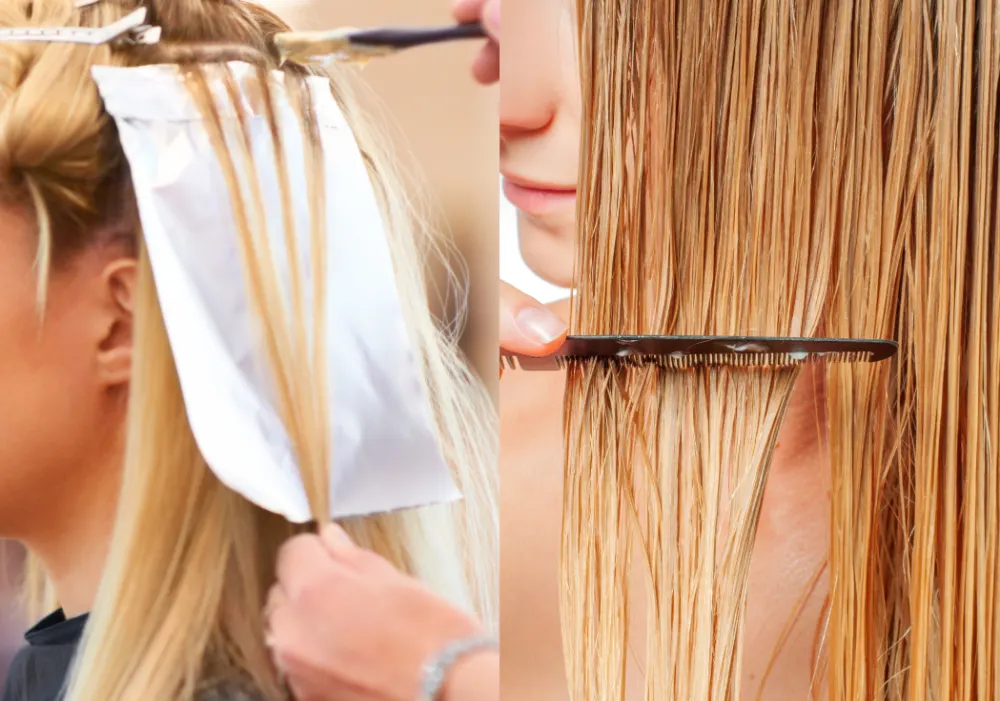
You can embrace healthy hair care or use chemicals or natural means to regain blonde hair.
- Use chemicals: Add highlights, blonde dyes, or toners to restore your blonde bombshell presence. Bleaches work faster, but hair dyes are better than bleaches if you want to maintain healthy hair.
- Use lemon juice: Spray your hair with equal portions of olive oil and lemon juice. Then, stay in the sun for 30 minutes before you condition or deep condition your hair.
- Apply hydrogen peroxide: Like lemon juice, hydrogen peroxide lightens hair. So, spray your hair with hydrogen peroxide and let it dry in the sun, then apply a leave-in conditioner. Don’t stay too long because hydrogen peroxide is a potent bleaching agent.
- Use blonde hair-specific products: Use shampoos and conditioners designed for blondes to ensure you don’t strip your hair of natural pigments. Also, use products with natural ingredients like calendula and chamomile.
- Nourish your hair: Use hydrating masks to replenish hair moisture. Also, use butter and natural oils that protect you from harsh weather and chemicals that discolor your hair.
- Rinse with chamomile tea: Boil five tea bags of chamomile in two cups of water and then let stand for a few minutes. Apply and leave in the mixture after you wash and condition your hair.
Natural methods like lemon juice and chamomile tea aren’t a one-time solution. So, you’ll have to repeat the procedure several times for desired results.
So, Why Is My Blonde Hair Turning Brown?
Your blonde hair turns brown because of the following factors.
- Hormonal changes that increase Eumelanin production
- Deposit of build-up from minerals, sebum, and hair products
- Prolonged exposure to harsh environmental conditions like UV rays and pollutants
- Inappropriate practices like the use of excessive temperatures in hair styling tools
Frequently Asked Questions
Most blonde hair naturally turns brown with age and factors like hormones and harsh weather. The change happens when the amount of eumelanin in your hair increases.
Yes, bleached blonde hair can turn brown based on how deep the bleaching process is. If the bleaching is light and you have a darker shade of blonde, your hair will likely turn brown again.
Blonde hair turning brown isn’t uncommon because the genes that make melanin turn on and off over your lifetime. If an increase happens in the cells beneath the hair, blonde hair turns brown.
Trending Topics
